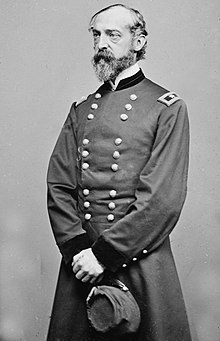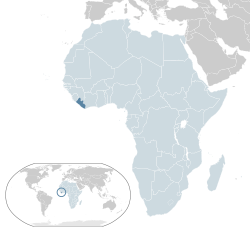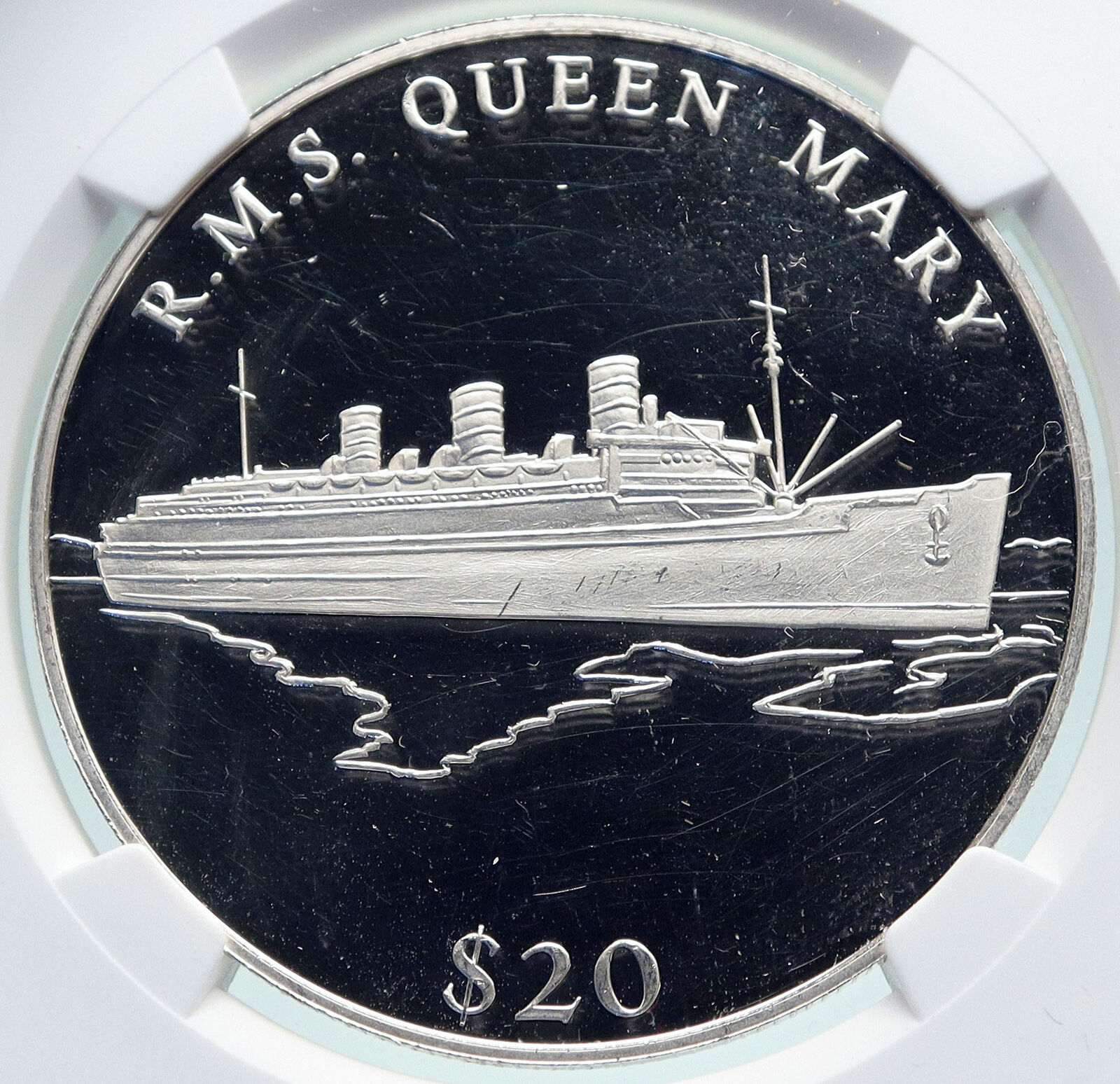|
Liberia –
Civil War – General George Meade
2000 Proof Silver
20 Dollars 40mm (20.00 grams) 0.999 Silver (0.6424 oz. ASW)
Reference: KM#
910
Certification: NGC
PF 68 ULTRA CAMEO 2863720-008
REPUBLIC OF LIBERIA THE LOVE OF LiBERTY BROUGHT US HERE 2000 REPUBLIC OF LIBERIA 20 DOLLARS, Coat of arms in the middle.
CIVIL WAR – GEORGE G. MEADE 1815-1872 $20, Uniformed General Meade facing 1/2
right.
You are bidding on the exact item pictured, provided with a Certificate of Authenticity and Lifetime Guarantee of Authenticity.
George Gordon Meade (December 31, 1815 – November 6, 1872) was a United States Army officer and civil engineer best known for decisively defeating Confederate General Robert E. Lee at the Battle of Gettysburg in the American Civil War. He previously fought with distinction in the Second Seminole War and the Mexican–American War. During the Civil War, he served as a Union general, rising from command of a brigade to that of the Army of the Potomac. Earlier in his career, he was an engineer and was involved in the coastal construction of several lighthouses.
 Meade’s Civil War combat experience started as a brigade commander (brigadier general) in the Peninsula Campaign and the Seven Days Battles. He was severely wounded while leading his brigade at the Battle of Glendale. As a division commander, he had notable success at the Battle of South Mountain and assumed temporary corps command at the Battle of Antietam. Meade’s division was arguably the most successful of any at the Battle of Fredericksburg in December. It was part of a force charged with driving the Confederate troops under Stonewall Jackson back from their position on Prospect Hill. The division made it further than any other, but was forced to turn back due to a lack of reinforcements. Meade was promoted to commander of the V Corps, which he led during the Battle of Chancellorsville. Meade’s Civil War combat experience started as a brigade commander (brigadier general) in the Peninsula Campaign and the Seven Days Battles. He was severely wounded while leading his brigade at the Battle of Glendale. As a division commander, he had notable success at the Battle of South Mountain and assumed temporary corps command at the Battle of Antietam. Meade’s division was arguably the most successful of any at the Battle of Fredericksburg in December. It was part of a force charged with driving the Confederate troops under Stonewall Jackson back from their position on Prospect Hill. The division made it further than any other, but was forced to turn back due to a lack of reinforcements. Meade was promoted to commander of the V Corps, which he led during the Battle of Chancellorsville.
During the Gettysburg Campaign, he was appointed to command the Army of the Potomac just three days before the Battle of Gettysburg. Arriving on the field after the first day’s action on July 1, Meade organized his army on favorable ground to fight an effective defensive battle against Robert E. Lee’s Army of Northern Virginia, repelling a series of massive assaults throughout the next two days. Lee was forced to retreat to Virginia, ending his hope of winning the war through a successful invasion of the North. This victory was marred by Meade’s ineffective pursuit during the retreat, allowing Lee and his army to escape instead of completely destroying them. The Union Army also failed to follow up on its success during the Bristoe Campaign and Battle of Mine Run that fall, which ended inconclusively. Meade suffered from intense political rivalries within the Army, notably with Major Gen. Daniel Sickles, who tried to discredit Meade’s role in the victory at Gettysburg.
In 1864–65, Meade continued to command the Army of the Potomac through the Overland Campaign, the Richmond–Petersburg Campaign, and the Appomattox Campaign, but he was overshadowed by the direct supervision of the general-in-chief, Lt. Gen. Ulysses S. Grant, who accompanied him throughout these campaigns. Grant conducted most of the strategy during these campaigns, leaving Meade with significantly less influence than before. His image was harmed by his notoriously short temper and disdain for the press. After the war, he commanded several important departments during Reconstruction.
 Liberia officially the Republic of Liberia, is a country on the West African coast. Liberia means “Land of the Free” in Latin. It is bordered by Sierra Leone to its west, Guinea to its north and Ivory Coast to its east. It covers an area of 111,369 square kilometres (43,000 sq mi) and is home to 4,503,000 people. English is the official language and over 20 indigenous languages are spoken, representing the numerous tribes who make up more than 95% of the population. Liberia officially the Republic of Liberia, is a country on the West African coast. Liberia means “Land of the Free” in Latin. It is bordered by Sierra Leone to its west, Guinea to its north and Ivory Coast to its east. It covers an area of 111,369 square kilometres (43,000 sq mi) and is home to 4,503,000 people. English is the official language and over 20 indigenous languages are spoken, representing the numerous tribes who make up more than 95% of the population.
 Forests on the coastline are composed mostly of salt-tolerant mangrove trees, while the more sparsely populated inland has forests opening onto a plateau of drier grasslands. The climate is equatorial, with significant rainfall during the May-October rainy season and harsh harmattan winds the remainder of the year. Liberia possesses about forty percent of the remaining Upper Guinean rainforest. It was an important producer of rubber in the early 20th century. Forests on the coastline are composed mostly of salt-tolerant mangrove trees, while the more sparsely populated inland has forests opening onto a plateau of drier grasslands. The climate is equatorial, with significant rainfall during the May-October rainy season and harsh harmattan winds the remainder of the year. Liberia possesses about forty percent of the remaining Upper Guinean rainforest. It was an important producer of rubber in the early 20th century.
The Republic of Liberia, beginning as a settlement of the American Colonization Society (ACS), declared its independence on July 26, 1847. The United States did not recognize Liberia’s independence until after the American Civil War on February 5, 1862. Between January 7, 1822 and the American Civil War, more than 15,000 freed and free-born Black Americans from United States and 3,198 Afro-Caribbeans relocated to the settlement. The Black American settlers carried their culture with them to Liberia. The Liberian constitution and flag were modeled after the United States. In January 3, 1848 Joseph Jenkins Roberts, a wealthy free-born Black American from Virginia who settled in Liberia, was elected as Liberia’s first president after the people proclaimed independence.
Unlike other African countries, Liberia is the only African republic to have self-proclaimed independence without gaining independence through revolt from any other nation, being Africa’s first and oldest republic. Although it is said that neither Liberia nor Ethiopia, which was a kingdom, were controlled or colonized by foreign powers, this seems contradictory since the country was actually started by the American Colonization Society (ACS). Liberia maintained and kept its independence during the European colonial era.
During World War II, Liberia supported the United States war efforts against Germany and in turn the United States invested in considerable infrastructure in Liberia to help its war effort, which also aided the country in modernizing and improving its major air transportation facilities. In addition, President William Tubman encouraged economic changes. Internationally, Liberia was a founding member of League of Nations, United Nations and the Organisation of African Unity.
Longstanding political tensions from the 27 year rule of William Tubman resulted in a military coup in 1980 that overthrew the leadership soon after his death, marking the beginning of political instability. Five years of military rule by the People’s Redemption Council and five years of civilian rule by the National Democratic Party of Liberia were followed by two civil wars – the First and Second Liberian Civil Wars. These resulted in the deaths and displacement of more than half a million people and devastated Liberia’s economy. A peace agreement in 2003 led to democratic elections in 2005. Recovery proceeds but about 85% of the population live below the international poverty line.
|









 Meade’s Civil War combat experience started as a brigade commander (brigadier general) in the Peninsula Campaign and the Seven Days Battles. He was severely wounded while leading his brigade at the Battle of Glendale. As a division commander, he had notable success at the Battle of South Mountain and assumed temporary corps command at the Battle of Antietam. Meade’s division was arguably the most successful of any at the Battle of Fredericksburg in December. It was part of a force charged with driving the Confederate troops under Stonewall Jackson back from their position on Prospect Hill. The division made it further than any other, but was forced to turn back due to a lack of reinforcements. Meade was promoted to commander of the V Corps, which he led during the Battle of Chancellorsville.
Meade’s Civil War combat experience started as a brigade commander (brigadier general) in the Peninsula Campaign and the Seven Days Battles. He was severely wounded while leading his brigade at the Battle of Glendale. As a division commander, he had notable success at the Battle of South Mountain and assumed temporary corps command at the Battle of Antietam. Meade’s division was arguably the most successful of any at the Battle of Fredericksburg in December. It was part of a force charged with driving the Confederate troops under Stonewall Jackson back from their position on Prospect Hill. The division made it further than any other, but was forced to turn back due to a lack of reinforcements. Meade was promoted to commander of the V Corps, which he led during the Battle of Chancellorsville. Liberia officially the Republic of Liberia, is a country on the West African coast. Liberia means “Land of the Free” in Latin. It is bordered by Sierra Leone to its west, Guinea to its north and Ivory Coast to its east. It covers an area of 111,369 square kilometres (43,000 sq mi) and is home to 4,503,000 people. English is the official language and over 20 indigenous languages are spoken, representing the numerous tribes who make up more than 95% of the population.
Liberia officially the Republic of Liberia, is a country on the West African coast. Liberia means “Land of the Free” in Latin. It is bordered by Sierra Leone to its west, Guinea to its north and Ivory Coast to its east. It covers an area of 111,369 square kilometres (43,000 sq mi) and is home to 4,503,000 people. English is the official language and over 20 indigenous languages are spoken, representing the numerous tribes who make up more than 95% of the population. Forests on the coastline are composed mostly of salt-tolerant mangrove trees, while the more sparsely populated inland has forests opening onto a plateau of drier grasslands. The climate is equatorial, with significant rainfall during the May-October rainy season and harsh harmattan winds the remainder of the year. Liberia possesses about forty percent of the remaining Upper Guinean rainforest. It was an important producer of rubber in the early 20th century.
Forests on the coastline are composed mostly of salt-tolerant mangrove trees, while the more sparsely populated inland has forests opening onto a plateau of drier grasslands. The climate is equatorial, with significant rainfall during the May-October rainy season and harsh harmattan winds the remainder of the year. Liberia possesses about forty percent of the remaining Upper Guinean rainforest. It was an important producer of rubber in the early 20th century.




